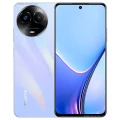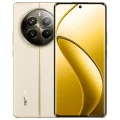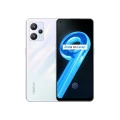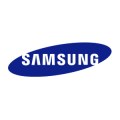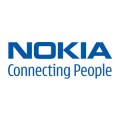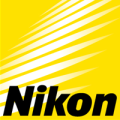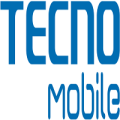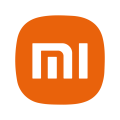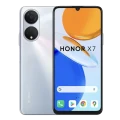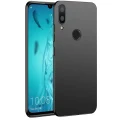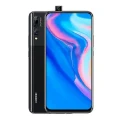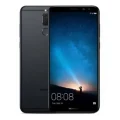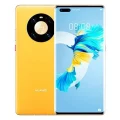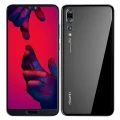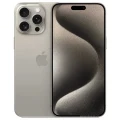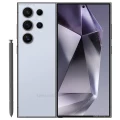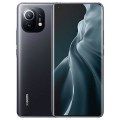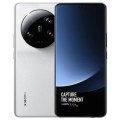- Awesome page
- Latest Mobile
- Smartphones
- Realme 3 Pro
Realme 3 Pro
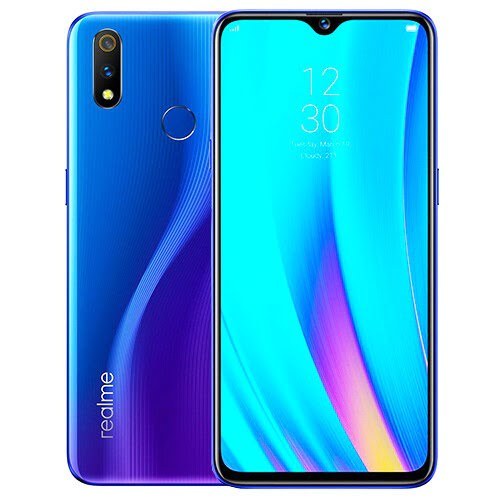


Realme 3 Pro Price in Bangladesh
The Realme 3 Pro Price in Bangladesh for the 4GB+64GB variant is BDT 15,000. This smartphone features a 6.03-inch IPS LCD capacitive touchscreen, providing a Full View display for an immersive experience. Powered by the Qualcomm SDM710 Snapdragon 710 (10nm) Octa-Core processor clocked at 2.2 GHz, the Realme 3 Pro ensures smooth performance. It is available with 4GB or 6GB of RAM and offers 64GB or 128GB of internal storage, expandable up to 256GB via external storage.
For photography, the device comes with a dual rear camera setup featuring 16MP and 5MP sensors, while the front is equipped with a 25MP selfie camera. The Realme 3 Pro is powered by a 4045mAh Li-polymer battery, ensuring long-lasting usage. The Realme 3 Pro Price in Bangladesh offers excellent value for those looking for a feature-packed smartphone at an affordable price.
Specifications
General
| Model | Realme 3 Pro |
| Announced | 2019, April |
| Released | 2019, May |
| Status | Available |
| Unofficial price | 4GB 64GB ৳15,000 / 6GB 64GB ৳17,000 |
Design
| Dimensions | 156.8 x 74.2 x 8.3 mm (6.17 x 2.92 x 0.33 in) |
| Weight | 172 g (6.07 oz) |
| Colors |
Carbon Gray, Nitro Blue, Lightning Purple |
Network
| Technology | GSM / HSPA / LTE |
| 2G Network |
GSM 850 / 900 / 1800 / 1900 - SIM 1 & SIM 2 |
| 3G Network |
HSDPA 850 / 900 / 2100 |
| 4G Network |
LTE band 1(2100), 3(1800), 5(850), 8(900), 38(2600), 40(2300), 41(2500) |
| GPRS <strong>GPRS</strong> (General Packet Radio Service) is a packet oriented mobile data service on the 2G and 3G cellular communication system's global system for mobile communications (GSM), Generally, GPRS is used for the purpose of wireless data transfer, such as sharing pictures and videos or browsing the Internet via a mobile phone connection. | |
| EDGE <strong>EDGE</strong> (Enhanced Data GSM Environment) is a wireless network technology generally considered the next step in the 2G network offers data transfer rates up to four times faster than ordinary GSM networks, Generally, EDGE is used for the purpose of wireless data transfer, such as sharing pictures and videos or browsing the Internet via a mobile phone connection. | |
| Speed | HSPA 42.2/11.5 Mbps, LTE-A (2CA) Cat6 300/75 Mbps |
Display
| Display Type <strong>Display Technology => </strong> A number of display technologies and types used in mobile phones => TFT (Thin Film Transistor), IPS (In-Place Switching), OLED (Organic Light Emitting Diode), AMOLED (Active-Matrix Organic Light-Emitting Diode), Super AMOLED (an even advanced version of AMOLED), Resistive Touchscreen (Resistive touchscreens contain two layer of conductive material with a very small gap between them which acts as a resistance), Capacitive Touchsceen (Capacitive touchscreen technology consists of a layer of glass coated with a transparent conductor) | IPS LCD capacitive touchscreen, 16M colors |
| Size | 6.3 inches, 97.4 cm2 (~83.7% screen-to-body ratio) |
| Resolution | 1080 x 2340 pixels, 19.5:9 ratio (~409 ppi density) |
| Features |
Corning Gorilla Glass 5 |
Camera
Main camera
| Camera Setup | Dual |
| Primary <strong>Camera</strong> is able to capture photographs and usually videos, The most important characteristics of a camera are the resolution (measured in megapixels), lens focus type (fixed or automatic), higher megapixel cameras are known to capture higher quality photos, but not always a good measurement of the photos quality. |
16 MP, f/1.7, 1/2.6&amp;quot;, 1.22µm, Dual Pixel PDAF 5 MP, f/2.4, depth sensor |
| Features |
LED flash, HDR |
| Video | 2160p@30fps, 1080p@30/120fps, 720p@960fps, gyro-EIS |
Selfie camera
| Camera Setup | Single |
| Primary <strong>Camera</strong> is able to capture photographs and usually videos, The most important characteristics of a camera are the resolution (measured in megapixels), lens focus type (fixed or automatic), higher megapixel cameras are known to capture higher quality photos, but not always a good measurement of the photos quality. |
25 MP, f/2.0, 1/2.8&amp;quot;, 0.8µm |
| Features | HDR |
| Video | 1080p@30fps |
Hardware
| Chipset <strong>Chipset</strong> is a group of integrated circuits designed to perform one or a more dedicated functions, often with real time computing constraints, Popular smartphones are equipped with more advanced embedded chipsets that can do many different tasks depending on their programming. | Qualcomm SDM710 Snapdragon 710 (10 nm) |
| CPU <strong>CPU</strong> (Central Processing Unit) mostly known as processors, CPU processes instructions in order to carry out certain functions that make your device operate properly. Processors are often described as the brain of computers, smartphones and tablets, Smartphones and tablets rely on processors to carry out their every task, Processors are an incredibly important factor in selecting any type of computing device, including your smartphone. | Octa-core (2x2.2 GHz Kryo 360 Gold & 6x1.7 GHz Kryo 360 Silver) |
| GPU <strong>GPU</strong> (Graphics Processing Unit) is a single-chip processor designed to rapidly manipulate and alter memory to accelerate the creation of images in a frame buffer intended for output to a display, This includes things such as lighting effects, object transformations, and 3D motion. | Adreno 616 |
| RAM (Memory) <strong>RAM</strong> (Random Access Memory) is a type of computer memory that can be accessed randomly, any byte of memory can be accessed without touching the preceding bytes that allows information to be stored and accessed quickly from random locations. RAM is the most common type of memory found in computer systems, smartphones, tablets and other electronic devices. | 4/6 GB RAM |
| Internal Storage <strong>Internal Storage</strong> is a data storage space (flash memory) mostly used in smartphones, tablets and other electronic devices where operating system, apps, music, photos, videos, files and other user data Is stored. | 64/128 GB |
| Sensors <strong>Sensors</strong> are electronic components that detects and responds to some type of input from the physical environment. The specific input could be light, heat, motion, moisture, pressure and location, The output is generally a signal that is converted to use in computing systems, a location sensor, such as a GPS receiver is able to detect current location of your electronic device. |
Fingerprint- (rear-mounted), accelerometer, gyro, proximity, compass |
Connectivity
| Bluetooth <strong>Bluetooth</strong> is a wireless communications technology for exchanging data between mobile phones, headsets, computers and other network devices over short distances without wires, Bluetooth technology was primarily designed to support simple wireless networking of personal consumer devices. | 5.0, A2DP, LE |
| Infrared <strong>Infrared</strong> connectivity is an old wireless technology used to connect two electronic devices. It uses a beam of infrared light to transmit information and so requires direct line of sight and operates only at close range. | |
| USB | microUSB 2.0, USB On-The-Go |
| GPS <strong>GPS</strong> The Global Positioning System is a satellite-based radio navigation system, GPS permits users to determine their position, velocity and the time 24 hours a day, in all weather, anywhere in the world, In order to locate your position, your device or GPS receiver must have a clear view of the sky. | Yes, with A-GPS, GLONASS |
| NFC <strong>NFC</strong> (Near field communication) is a set of standards for smartphones and similar devices to establish peer-to-peer radio communications with each other by touching them together or bringing them into proximity, usually no more than a few inches. |
Battery
| Battery Type <strong>Battery Type => </strong> Cell phones run on various kinds of batteries depending on the manufacturer, phone size or shape and features. There are basically four types of cell phone batteries => Lithium Polymer, Lithium Ion, Nickel Metal Hydride and Nickel Cadmium. | Non-Removable Li-Po |
| Capacity <strong>Battery Capacity</strong> is a measure (typically in Amp-hr) of the charge stored by the battery, and is determined by the mass of active material contained in the battery. The battery capacity represents the maximum amount of energy that can be extracted from the battery under certain conditions. | 4045mAh Li-Ion |
| Charging Charging | Fast battery charging 20W: 50% in 30 min (VOOC 3.0) |
Realme 3 Pro Review: Unleashing Potential at an Affordable Price
In a market saturated with smartphones, finding a device that balances performance, aesthetics, and affordability can feel like searching for a needle in a haystack. Enter the Realme 3 Pro, a phone that promises to deliver all three. Tech enthusiasts, smartphone users, and Realme fans alike are buzzing with excitement. But does it live up to the hype? Let’s find out.
A First Glance at Realme 3 Pro
First impressions matter, and the Realme 3 Pro makes a strong one. The sleek design and glossy finish give it a premium feel, defying its budget-friendly price tag. From the moment you unbox it, the attention to detail is evident. The ergonomic design fits comfortably in hand, and the vibrant display immediately draws you in.
Under the Hood: Technical Specifications
Let’s break down what makes the Realme 3 Pro tick. At its core, the device is powered by the Snapdragon 710 processor, a robust choice for mid-range phones. Coupled with either 4GB or 6GB of RAM, it ensures smooth multitasking and responsive performance.
The device boasts a 6.3-inch Full HD+ display, offering crisp and clear visuals perfect for media consumption. The dual rear camera setup features a 16MP primary sensor paired with a 5MP depth sensor, while the front camera stands at 25MP. The 4,045mAh battery supports VOOC 3.0 fast charging, promising quick refuels.
Performance in the Real World
Numbers on a spec sheet are one thing, but how does the Realme 3 Pro perform in everyday use? Spoiler alert – it doesn’t disappoint. The Snapdragon 710 handles daily tasks with ease, from browsing social media to streaming videos and playing games. Apps launch swiftly, and switching between them is seamless.
Comparing it with competitors like the Redmi Note 7 Pro and Samsung Galaxy M30, the Realme 3 Pro holds its ground firmly. It offers a fluid and lag-free experience, proving that affordability doesn’t have to mean compromise.
Capturing Moments with the Camera
For many, the camera can make or break a phone. The Realme 3 Pro’s camera setup is impressive, especially considering its price. The 16MP primary sensor captures detailed and vibrant shots in good lighting conditions. Colors are accurate, and the dynamic range is commendable.
Low light performance, often a weak spot in budget phones, is surprisingly good. Nightscape mode enhances low light shots, reducing noise and bringing out more detail. The 25MP front camera shines in selfies, delivering sharp and flattering images.
Battery and Charging Experience
Battery life is a crucial factor for any smartphone user. The Realme 3 Pro’s 4,045mAh battery comfortably lasts a full day of heavy use. Streaming, gaming, and social media browsing don’t drain the battery as quickly as one might expect.
When it does come time to charge, the VOOC 3.0 fast charging feature is a game-changer. It can charge the phone from 0 to 50% in just 30 minutes, ensuring you’re not tethered to a power outlet for long periods.
Navigating the Software and User Interface
Running on ColorOS 6 based on Android 9 Pie, the Realme 3 Pro offers a user-friendly experience. The interface is clean and intuitive, with minimal bloatware. Customization options are extensive, allowing users to tailor the phone to their preferences.
Pre-installed apps are useful without being intrusive, and features like gesture navigation and smart driving mode add value. Regular updates from Realme ensure that the software stays current and secure.
Evaluating the Price-Performance Ratio
One of the standout features of the Realme 3 Pro is its price-performance ratio. Priced competitively against rivals, it offers a suite of features typically found in higher-end devices. The combination of a powerful processor, excellent camera setup, and long-lasting battery makes it a formidable contender in the mid-range segment.
When you consider what you’re getting for the price, the Realme 3 Pro is a steal. It’s a testament to Realme’s commitment to providing high-quality devices at accessible prices.
Final Thoughts on the Realme 3 Pro
In conclusion, the Realme 3 Pro delivers on its promises. It blends performance, design, and affordability into a package that’s hard to beat. For tech enthusiasts, it’s a device that offers plenty to explore and enjoy. For everyday smartphone users, it’s reliable and efficient.
Whether you’re a Realme fan or new to the brand, the Realme 3 Pro is worth considering. Its blend of features and value makes it a standout choice in a crowded market.
